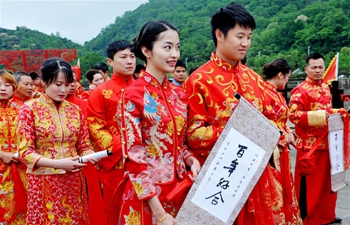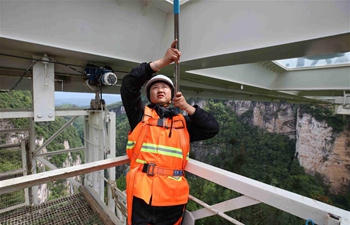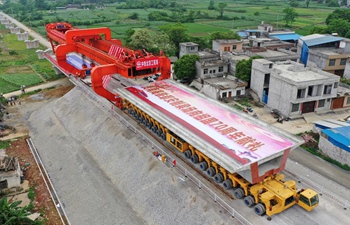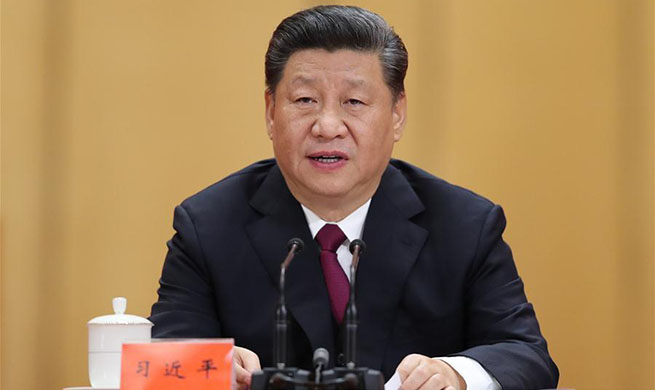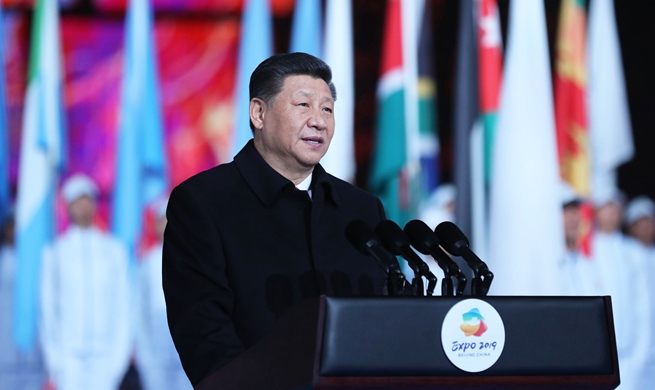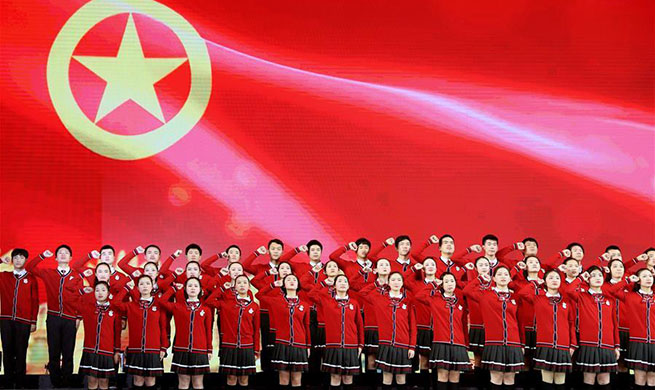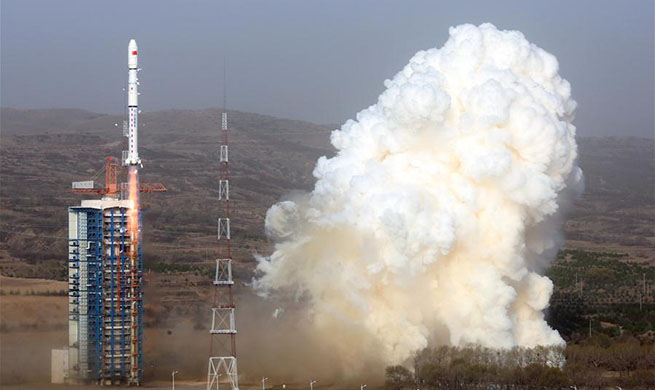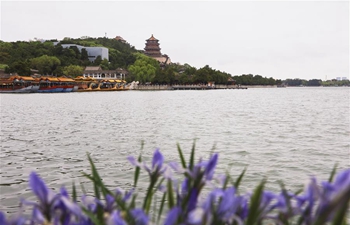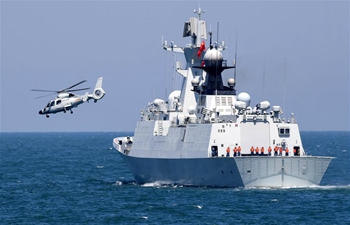By Misbah Saba Malik
ISLAMABAD, April 30 (Xinhua) -- The second phase of Free Trade Agreement (FTA) between Pakistan and China will give a boom to Pakistan's agriculture besides supporting its industry as more Pakistani products are expected to have access to the Chinese market with zero tariff.
China is already investing dozens billion U.S. dollars through the China-Pakistan Economic Corridor (CPEC) in Pakistan, and local observers believe that the second phase of the bilateral FTA signed during Prime Minister Imran Khan's recent visit to China will be a step forward by China to support the Pakistani economy.
Under the FTA, China would offer Pakistan 90 percent of its market access and in return asked for only 65 percent of Pakistan's market access for its products. By doing so China will provide a huge opportunity to Pakistan to improve its overall trade performance, Chinese Ambassador to Pakistan Yao Jing said recently in a press conference.
Pakistani Prime Minister's Advisor on Commerce and Textile Abdul Razak Dawood also said recently that a list of 313 items is included in the FTA including commodities from agriculture, textile goods, leather and other wide range of goods.
The advisor added that China has provided a great business opportunity to Pakistan through the FTA as it offered an opportunity to the country to increase its export by 500 million U.S. dollars.
"We look towards the West but factually speaking, the 21st century belongs to Asia. Great business window has been open for Pakistanis in CPEC and the FTA with China," said the advisor.
Echoing Dawood's stance, Adnan Khan, a research associate with the CPEC Center of Excellence (COE), an Islamabad-based think tank under Pakistan's Ministry of Planning, Development and Reform, said that China has provided an opportunity to Pakistan to maintain a balance of trade with it. Though there is still a long way for Pakistan to go, the recently signed FTA has started the process, said Khan.
Muhammad Muzammil Zia, policy head of the Job Growth and Human Resource Development in the COE, told Xinhua that over 60 percent of the Pakistani population is associated with the agriculture sector and the FTA will benefit the farmers, as their surplus products are likely to be exported to China, giving them good amount of money in return and providing them an opportunity to improve their methods of cultivation.
Pakistan previously exported only up to 600,000 tons of rice to China, whereas the country produced about 5 million tons of surplus rice every year, and under the new FTA Pakistan is in a position to export more rice to China, said Zobair Tufail, vice president of the Federation of Pakistan Chamber of Commerce and Industries (FPCCI).
"Similar is the case of sugar and other commodities, and textiles and fisheries, all these products can find a new duty-free market in China," said Tufail.
As agriculture is the lifeline of the Pakistani economy, local observers believe that its tariff-free access to the Chinese market will not only increase the revenue generation from exports, but also encourage local farmers to acquire modern methods to increase production.
The prime minister's commercial advisor recently directed the FPCCI to establish a think tank on the Pakistan-China FTA to conduct extensive research and come up with capacity building initiatives for its member organizations, according to local reports.
Besides, local watchers hope that the recently signed FTA will also provide an opportunity to strengthen local industry by encouraging local investors to increase their production, and foreign entrepreneurs to invest in Pakistan to tap the potential of the market.
Tufail said they are in talks with industrialists who will visit China to have a better understanding of the market and develop their products accordingly, adding that the country's agriculture sector has already got access to the world's largest food market, and the industrial sector will also get a boom under the FTA.
He said the agreement would also be beneficial for Pakistani industrialists as they will be able to import machines and other production materials from China on zero-tariff, decreasing the cost of production.
Muhammad Ashraf, spokesperson of Pakistan's Ministry of Commerce told Xinhua that by giving more market access, China is going to cover more than 80 percent of Pakistan's export basket.
"The market access does not mean anything, unless you have the production capability to supply to the market. We are going to hold a series of awareness sessions with potential businessmen to tell them what kind of opportunities they have, and what products they can produce to tap the Chinese market," said the official.
To tap the maximum potential of the FTA, Pakistan needs a long term and sustainable solution to capture the Chinese market, and CPEC is playing a vital role in this regard in the form of Pak-China industrial cooperation, which is going to be formed in the Special Economic Zones (SEZs) proposed under CPEC.

